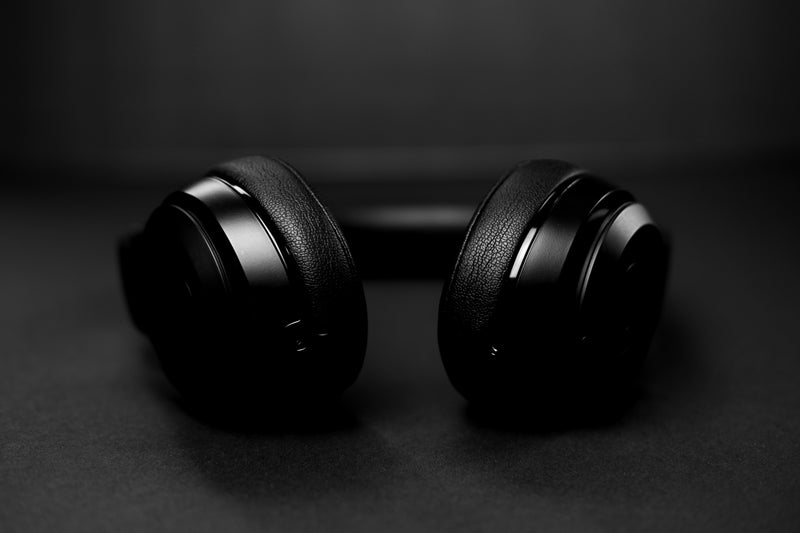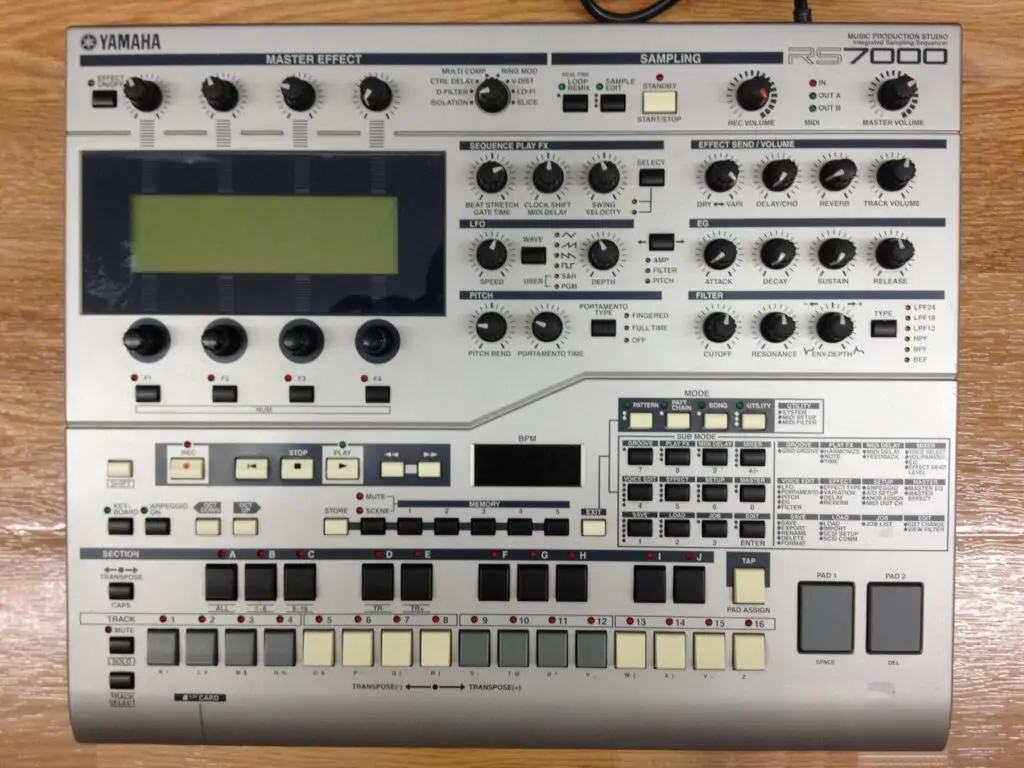Are you tired of relying on others to produce the music you dream of creating? Have you always wanted to learn the ins and outs of music production but don’t know where to start? Look no further, because we’ve got the ultimate guide for learning music production solo. With this comprehensive guide, you’ll have all the tools and resources you need to take your music production skills to the next level. Whether you’re a beginner or experienced musician, we’ve got tips and tricks that will help you become a master at producing your own music. So, grab your headphones and get ready to dive into the world of music production like never before.
Table of Contents

Getting started: Tips on how to learn music production on your own
Learning music production alone can seem daunting, but it’s definitely possible with the right mindset and approach. One of the most important things is to establish clear goals for what you want to achieve as a self-taught producer in terms of skills and knowledge. Utilize online resources such as YouTube tutorials, forums, and blogs that cover topics ranging from sound engineering to composition. Start small by focusing on one area at a time, whether that’s learning how to use your DAW or experimenting with different types of synthesis. It’s also helpful to practice consistently – even if it’s just for short periods each day – and take notes on what you’re learning along the way. Stay curious and don’t be afraid to experiment: trying new techniques will help you develop your own unique style as a solo music producer.
Tools of the trade: Essential equipment and software for solo music production
Essential equipment and software for solo music production
To start producing music on your own, you’ll need a few essential tools. First and foremost, you’ll need a computer or laptop with enough processing power to handle music production software. Digital Audio Workstations (DAWs) are the backbone of any music production setup, and there are many options available, such as Ableton Live, Logic Pro X, and FL Studio.
In addition to a DAW, you’ll need audio interfaces to connect your instruments and microphones to your computer. Studio monitors or headphones are also crucial for accurate sound reproduction. Virtual Instruments (VSTs) can be used to create sounds without physical instruments.
Finally, you’ll need to invest in high-quality plugins for mixing and mastering your tracks. Plugins such as EQs, compressors, and reverbs can help shape the sound of your recordings.
Investing in quality equipment and software can make a huge difference in the quality of your productions. However, it’s important to remember that creativity is more important than gear. Don’t let a lack of resources hold you back from creating great music.

The basics: Understanding sound design, mixing, and mastering as a self-taught producer
Sound design, mixing and mastering are three important aspects of music production. As a self-taught producer, it’s crucial to develop an understanding of these concepts in order to create high-quality tracks. Sound design involves creating unique sounds using synthesizers, samplers, and other tools. It requires experimentation and creativity to produce something that stands out from the crowd.
Mixing is the process of balancing all individual elements of a track such as vocals, drums, basslines etc., while also adding effects like reverb or EQ. This will ultimately determine how well your mix translates across different speakers and platforms.
Mastering takes place after mixing where the final version undergoes further processing for overall cohesiveness & loudness balance among many other factors for commercial release.
While there are countless online resources available which cover sound design techniques or provide tips on mixing/mastering with specific software/plugins respectively, it can be overwhelming for beginners. Therefore it is best practice to first focus on one DAW at hand (e.g Logic Pro X) and then learning via practical guides/tutorials by experienced professionals who share their workflows through detailed videos/articles covering various genres/styles & techniques involved in music production
Staying motivated: Strategies for consistent practice and improvement in music production
Consistent practice is key to improving as a solo music producer. Set achievable goals for each session and make sure to dedicate enough time regularly. Try practicing different techniques in producing, mixing, and mastering to expand your skillset.
It’s also important to track your progress. Save previous drafts of your work so you can compare them with newer versions and see how far you’ve come. Getting feedback from others can be helpful too, but remember that ultimately it’s up to you whether or not to implement suggested changes.
Finding inspiration can sometimes be challenging as a self-taught musician, especially when working alone for long periods of time. Experimenting with new genres or equipment can help reignite creativity. Joining online communities or attending local events related to music production could provide opportunities for collaboration and fresh perspectives on the craft.
Overall, consistency in practice coupled with experimentation and community involvement will keep solo music producers motivated towards their goals of mastery in the field.
Collaborating with others: How to network and build connections as a solo music producer
Networking and collaboration are crucial components of success in the music industry, even for solo producers. Building connections with other musicians, engineers, and industry professionals can lead to valuable opportunities such as remixing projects or placements in film or TV. One way to network is by attending conferences or events related to music production. Online communities and forums can also provide a platform for collaborating with others remotely. When collaborating, it’s important to have clear communication and expectations set from the beginning in order to avoid misunderstandings later on. By working with other artists who share similar goals and values, solo producers can expand their skillset and gain exposure within the industry.
Navigating challenges: Common obstacles faced by solo producers and how to overcome them
Overcoming creative blocks: Tips for staying inspired and motivated when working alone
how to learn music production on your own, solo music producer
As a solo music producer, it can be easy to get stuck in a creative rut or lose motivation. One way to combat this is by setting achievable goals for each session and rewarding yourself after reaching them. Another tip is to experiment with new techniques or genres to keep things fresh and exciting. Listening to other producers’ work can also provide inspiration, as well as collaborating with fellow musicians or seeking feedback from trusted sources. Finally, taking breaks and practicing self-care is crucial in maintaining energy and creativity levels. Remember that every obstacle presents an opportunity for growth and improvement, so embrace the challenge of being a solo music producer learning music production on your own!
Building a network: Strategies for connecting with other producers, musicians, and industry professionals
Networking is crucial for any aspiring music producer, especially when learning solo. One way to build connections is by attending local music events and joining online communities such as forums or social media groups. Collaborating with other musicians and producers can also help expand your network and provide opportunities for growth. It’s important to be proactive in reaching out to others and offering value in return. Don’t be afraid to ask for feedback or advice from industry professionals, but also be respectful of their time and expertise. Remember that building relationships takes time and effort, but it can ultimately lead to valuable opportunities in the music industry.
Managing time effectively: Techniques to boost productivity and avoid burnout when working solo
Solo music production can be a daunting task, and managing your time effectively is crucial. It’s important to prioritize tasks and set achievable goals with realistic deadlines. Another technique for boosting productivity is breaking up work into smaller, focused sessions rather than long marathons. Avoid burnout by taking regular breaks and maintaining a healthy work-life balance. Finally, staying organized with project management tools such as Trello or Asana can help you stay on track and avoid feeling overwhelmed. Remember that self-discipline and commitment are key to success in learning music production on your own!
Setting goals and measuring progress: Best practices for tracking your development as a music producer
One of the keys to achieving success in music production as a solo producer is setting clear goals and measuring your progress. By defining specific objectives – such as mastering a certain technique or completing a track within a certain timeframe – you can assess your development over time, identify areas for improvement, and stay motivated. To effectively track your progress, consider using tools like project management software or spreadsheets to monitor your milestones and deadlines. Additionally, seeking feedback from other producers or participating in online communities can provide valuable insight into where you stand compared to others in the field.

Success stories: Real-life examples of successful music producers who taught themselves the craft
Successful music producers who taught themselves how to produce music are an inspiration to many aspiring producers. One such example is Illenium, who started producing music as a hobby and eventually became a successful artist with millions of streams on platforms like Spotify and SoundCloud. Another example is Martin Garrix, who started producing music at the age of 16 and went on to become one of the most successful DJs in the world. These success stories prove that with dedication, hard work, and a willingness to learn, anyone can become a successful music producer on their own. It’s important to remember that success doesn’t happen overnight, but with consistent practice and improvement, you can achieve your goals as a solo music producer.
In conclusion, learning music production on your own can be a challenging but rewarding journey. With the right mindset, tools, and strategies, you can develop your skills and create amazing music without formal education or mentorship. Remember to stay motivated, collaborate with others, and overcome obstacles along the way. And if you need more guidance and inspiration, be sure to check out our other content on music production and related topics. Whether you’re a beginner or an experienced producer, there’s always something new to learn and explore in this exciting field. So keep creating and pushing the boundaries of what’s possible in music!
Q & A
Q: Who can learn music production on their own?
A: Anyone with a passion for music and access to a computer can learn.
Q: What are the basic steps to learn music production?
A: Start with learning the software, study music theory, practice, and experiment.
Q: How can I stay motivated while learning music production?
A: Set goals, track progress, and seek feedback from peers or online communities.
Q: What equipment do I need to learn music production?
A: A computer, digital audio workstation (DAW) software, and headphones or monitors.
Q: How long does it take to learn music production on your own?
A: It varies, but with consistent practice and dedication, you can see progress in a few months.
Q: But isn’t it better to take classes or have a mentor?
A: While classes and mentors can be helpful, self-learning allows for more flexibility and personalization.

